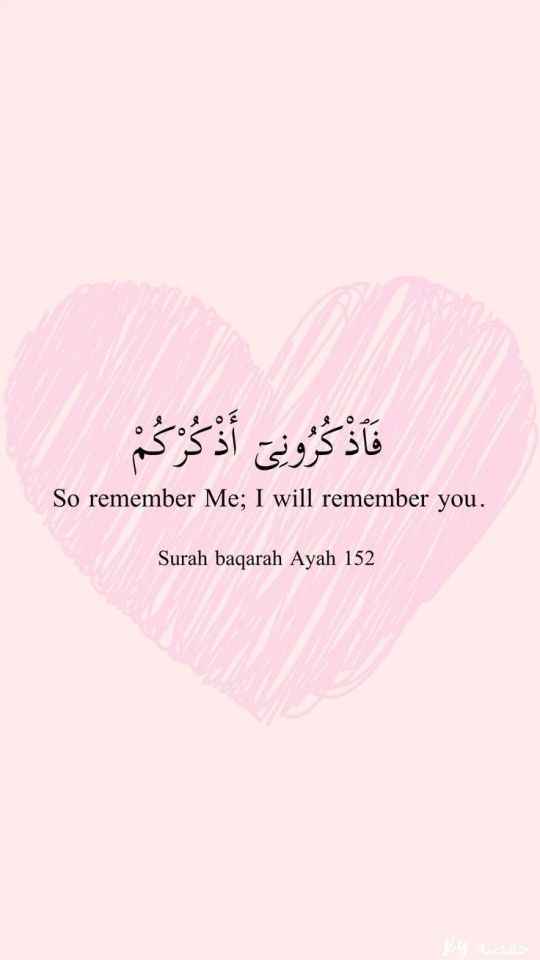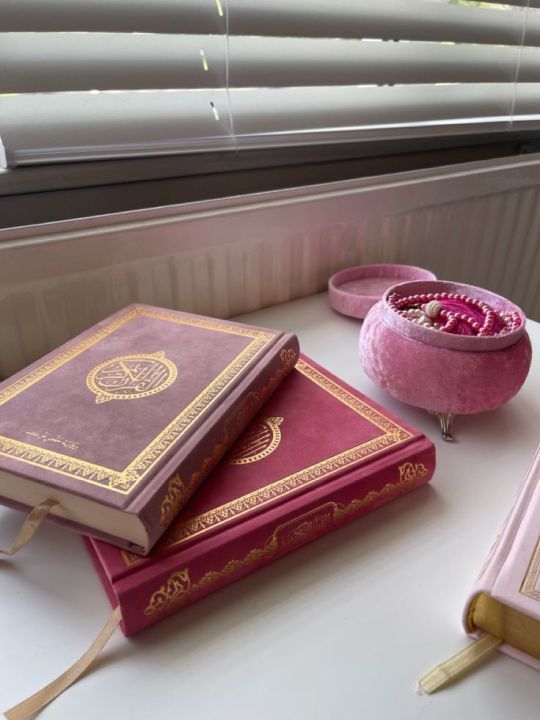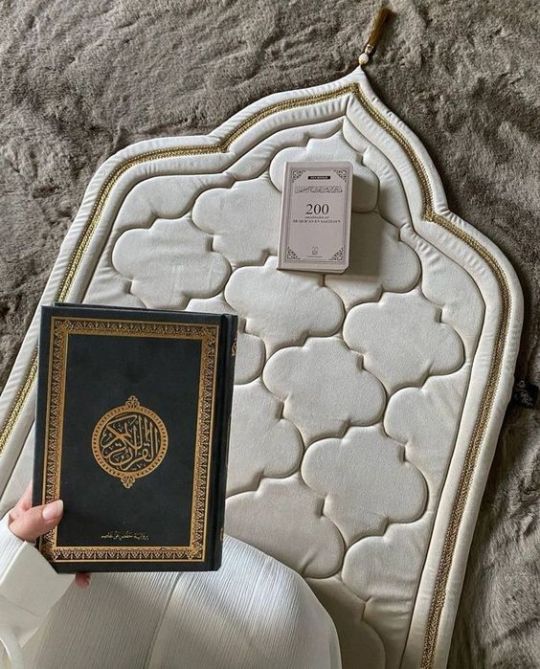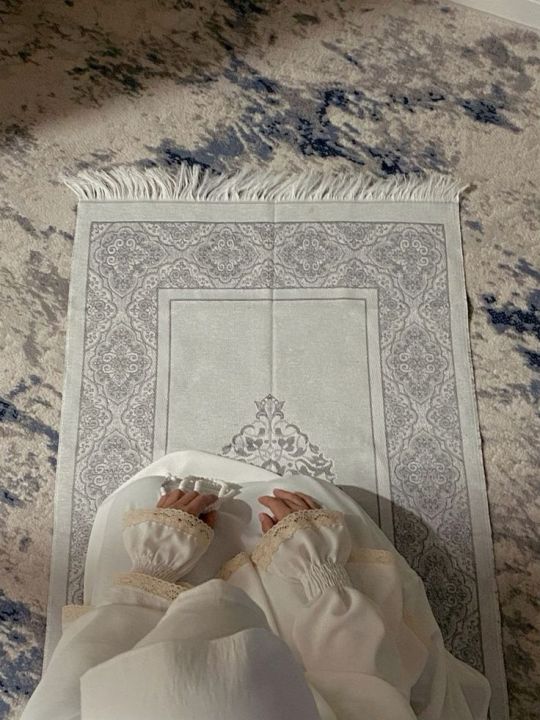#Ayatul Kursi and the power of ayatul Kursi
Explore tagged Tumblr posts
Text
4 habits that will change your life ✨



istighfar x100 a day
i cannot stress enough how powerful istighfar is. when i first started doing this x100 a day, i almost told my therapist i don't need therapy anymore because life suddenly got so much better lol. obviously, that didn't last because life isn't consistent and stable like that. nonetheless, istighfar protects you, it gives you strength through Allah's Mercy, it brings you closer to Him, it grants you peace and happiness. it doesn't take too long to do 100 times a day. just sit there after a prayer, i picked fajr, and recite 'astagfirullah' on your fingers like you would usually do tasbih after salah, or use beads etc. it takes about 5 minutes of your day and will change your life. try it every day for 1 week and see what happens.
dhikr when you wake up and before you go to bed
by doing this, you're starting and ending your day with the remembrance of Allah. my grandma used to say that the way you start your morning determines the rest of your day. it's also scientifically proven that the first thing your brain gets dopamine from is what your brain is going to look for the rest of the day. for eg, if you go on your phone as soon as you wake up, you're more likely to be tapping your phone, scrolling, going on your phone for the rest of the day. because it sets the tone!
so, if you start your day with the remembrance of Allah, not only are you getting blessings for it and improving your relationship with Him, but you'll set the tone for the rest of the day and will probably be more inclined to do dhikr later on too. i can testify that it definitely works. it's the best way to get your day started.
and when you end with dhikr, it's the same thing but in reverse--a peaceful way to end the day, easier to fall asleep and a great way to feel connected to Allah سُبْحَٰنَهُۥ وَتَعَٰلَىٰ. it's also scientifically proven that the condition you fall asleep in usually stays with the person all night. think about a time you've had such a good day/night and you fall asleep happy. did you wake up feeling good? what about when you've fallen asleep crying or upset? maybe the sleep was so good after but did you still wake up happy? so, if you go to sleep in a state of remembering Allah, you'll likely wake up in that state too.
now think about the benefits of doing dhikr as you go to bed and wake up every single day. you'll always be in a state of the remembrance of Allah! the Prophet ﷺ used to recite the last three surah's of the qur'an, ayatul kursi and the last two verses of surah baqarah. you can do any dhikr you'd like, 'subhanallah wa bihamdi' or 'alhamdulillah' or 'astagfirullah'. pick whatever you like.
surah mulk before bed
It was narrated from Abu Hurairah that the Prophet (ﷺ) said:
"There is a surah in the Qur'an, with thirty verses, which will intercede for its companion (the one who recites it) until he is forgiven: Tabarakal-ladhi bi yadihil mulk (Blessed is He in Whose Hand is the Dominion)." - Surah Mulk (Sunan Ibn Majah 3786)
surah mulk has lots of benefits, and Abdullah bin Mas‘ud (one of the companions of our beloved Prophet ﷺ) narrated that “whoever recites Surah al-Mulk every night, Allah will prevent the punishment of grave by this Surah”.
so clearly, there are a lot of benefits by reciting this surah that we will thank ourselves for in the next life - preparing for our akhirah (afterlife) is very important. you'll also end your day with the remembrance of Allah and have the specific reminder through this surah that everything belongs to Allah and is under His control. it helps me have nice dreams too.
it's not very long, it has 30 verses so it won't take a really long time.
learning a new surah bimonthly
this helps you build a relationship with the Qur'an and is a nice challenge for you to incorporate into your life. i recommend reading the translation and commentary of the surah first, so that you don't simply memorise it but know what it's about, what Allah is trying to say with the chapter and how you can live by it. but incorporating the memorisation of Allah's words into your life is a gamechanger: you'll build a bond with Allah, with the Qur'an and also with your salah too. because it's always exciting to be able to recite a new surah in your prayers - being able to do that multiple times a year is great.

start small and you will turn these all of these into habits. remember that the Prophet ﷺ said that 'the best of deeds are those which are done consistently, even if it is a little' (Sunan Ibn Majah 4240). what do we call things that are done consistently? habits!
start with one and do it every day for 30 days. then keep going and slowly add another once the first one has become fully established as a habit. sometimes we want to rush and do everything all at once and change our lives overnight. that's the worst thing to do because you'll either never do it or, you will start, then become so overwhelmed with so many new things to do that the habits won't stay and won't be long term. don't worry, we have our whole lives :) start slow and your life will change for the better. may Allah make it easy for us all, Ameen ♡
#islam#muslim#sabrgirl#religion#allah#quran#prayers#islamic#muslims#jummah#welcome to islam#hadith#zikr#tasbeeh#ramadan
152 notes
·
View notes
Text
Dua's to recite after praying ♡
• tasbih:
subhanallah x33
alhamdulillah x33
Allah akbar x33
followed by Laa ilaaha ill-Allah wahdahu laa shareeka lah, lahu’l-mulku wa lahu’l-hamd wa huwa ‘ala kulli shay’in qadeer (there is none worthy of worship except Allah alone with no partner. to Him belongs all sovereignty and praise, and He has power over everything)
• Istighfar:
astaghfirullah x3
• Ayatul Kursi
Hadith: Prophet ﷺ said: "Whoever recites Ayat al-Kursi at the end of every obligatory prayer, nothing but death will prevent him from entering Paradise."
لا إِلَهَ إِلَّا أَنتَ سُبْحَنَكَ إِنِّي كُنتُ مِنَ الظَّلِمِينَ
La ilaha illa anta subhanaka inni kuntu minaz-zalimin
(There is no God but You, Holy art Thou. I have indeed been of the wrongdoers).
لَا حَوْلَ وَلَا قُوَّةَ إِلَّا بِاللَّهِ الْعَلِي الْعَظِيمِ
Laa hawla wa la quwwata illa billah
(There is no strength of power except Allah)
اللَّهُمَّ إِنِّي أَسْأَلُكَ حُسْنَ الْخَاتِمَةِ
Allahumma inni asaluka husnul khatima
(O Allah, grant me a good and beautiful end to my life).
There are, of course, many others. these are just a select few to avoid overwhelm and to encourage. there is a hadith that says, if, after praying, one stays on their prayer mat and does not break their wudhu (ablution), the angels keep on asking for Allah's blessings and forgiveness for them. they say 'O Allah! Forgive him and be Merciful to him'. (Sahih al-Bukhari 659)
This is why it is important and good to remain in your place for a while after praying and remember Allah. these dua's are good to start with. may Allah make it easy for us all, Ameen 🕊💌🫀
#islam#muslim#deen#islamicquotes#islamicreminder#islamicreminders#allahﷻ#muhammadﷺ#bismillah#explore
35 notes
·
View notes
Text
Hadith on Quran: The Prophet recites al-Sajdah, al-Mulk before sleep
Jabir reported: The Prophet, peace and blessings be upon him, would not go to sleep until he had recited the chapters, “The revelation of the Book, in which there is no doubt, from the Lord of the worlds,” (32:1) and, “Blessed is He in whose hand is the dominion, and has power over all things,” (67:1).
Tawus said, “They both have seventy more virtues than every other chapter of the Quran.”
Source: Sunan al-Tirmidhī 2892
Make wudu
-Dust the bed 3 times before sleeping
Recite last two verses of the Surah Baqarah- **Narrated Abu Mas’ud: The Prophet (ﷺ) said, “If somebody recited the last two Verses of Surat Al-Baqara at night, that will be sufficient for him.”
Sahih al-Bukhari 5009**
-Recite Surah Ikhlas, Nas and Falaq- **Narrated ‘Aisha: Whenever the Prophet (ﷺ) went to bed every night, he used to cup his hands together and blow over it after reciting Surat Al-Ikhlas, Surat Al-Falaq and Surat An-Nas, and then rub his hands over whatever parts of his body he was able to rub, starting with his head, face and front of his body. He used to do that three times.
Sahih Al-Bukhari 5017”**
-Recite Surah Mulk
-Recite Ayatul Kursi
-Recite the shahadah
Also you can recite a dua when going to sleep. Nabi Muhammad (SAW) would say these words before sleeping.
Allahumma bismika amuu’tu wa ah’ya (Translation: O Allah in your name, I die and I live)
#islam#quran#islamic#muslim#islamicquotes#pakistan#islamic group#muslim community#muslim countries#istanbul#surah mulk#hadith#salah#arabic dua#dua#jumahmubarak#hadith sahih#urdu#islamicreminders#tahujjud#prophet ﷺ
10 notes
·
View notes
Note
Praying 5 times a day isnt enough, i need to pull out the quran and recite the ayatul kursi to ward off the devils (binotto & s*inz) /// Forget ayat al kursi, put surat al bakara on loop in the garage. Playing it for 40 days straight is said to ward off evil spirits, jinn and the devil from the room its recited in and it protects the listeners from bodily harm. Plus is the last 10 days of ramadan, the holiest 10 days where prayers are answered and satan and his followers are chained in hell (hopefully where binotto will be going). Muslim lecfosi, include Charles in all of your prayers, specially in sa’at al istijaba.
okayy! keep going, keep going, maybe it will power us to that p1
13 notes
·
View notes
Note
Sky I keep having small flies fly around my face it’s been like a week of this I’m so scared 😭 I’ve tried praying to cleanse myself but it hasn’t worked 💔 do you think someone’s put something on me
How strange! I wouldn't think so. But to feel better, you should recite ayatul kursi throughout the day as much as you can and I can make dua for you. Faith is more powerful than any evil- remember that. 🤍
5 notes
·
View notes
Text
Shop Engraved Couple Ring Set Online
The Ayatul Kursi Ring is a piece of jewelry engraved with the verse Ayatul Kursi (Surah Al-Baqarah, 2:255) from the Quran. Known for its spiritual significance, this verse is often recited for protection, blessings, and spiritual strength. The ring is worn by many Muslims as a reminder of Allah's sovereignty, knowledge, and power, offering both a physical and spiritual connection to faith. It is often considered a symbol of divine protection and guidance.
PRODUCT DETAILS
Handmade item
Materials: 925 Sterling Silver, German Silver
Style: Ayatul Kursi Ring
Made to Order
as per your requirement
#Personalized Arabic Engraved Ring Online#Engraved Couple Ring Set Online#Personalised fingerprint ring Online#Shop Engraved Couple Ring Set Online#Best Ring For Women Online In India
0 notes
Text
0 notes
Text
The Blessings and Importance of Ayatul Kursi
Ayatul Kursi, which is verse 255 from Surah Al-Baqarah in the Quran, holds a special place in Islamic teachings. Known for its profound meaning and the protection it offers, this verse has been cherished by Muslims for centuries. Its virtues are immense, and its benefits are countless, making it a verse of great importance in daily life. Understanding the benefits and virtues of Ayatul Kursi can help bring more peace and protection into one’s life, strengthening faith and offering comfort during challenging times.
Ayatul Kursi is often called the verse of the Throne, referring to Allah's divine sovereignty and power. It speaks of Allah’s supremacy, knowledge, and control over the heavens and the earth. The verse begins by describing how Allah is the one true God, free from any need, and continues to outline His reign over all that exists. The verse serves as a reminder of His greatness and the importance of submitting to His will.
Protection from Harm
One of the most well-known benefits and virtues of Ayatul Kursi is the protection it offers. It is said that reciting Ayatul Kursi after each prayer or before going to bed can shield a person from harm, whether physical or spiritual. The Prophet Muhammad (peace be upon him) is reported to have emphasized the power of Ayatul Kursi in providing safety from various dangers, including harm from the devil and any negative energy.
This protective power comes from the verse itself, which speaks of Allah’s might and sovereignty. By reciting it, a person is reminded of Allah’s all-encompassing authority, creating a sense of security and peace in their heart.
Enhancing Faith and Spiritual Awareness
Reciting Ayatul Kursi regularly can help strengthen one’s faith and deepen their connection with Allah. The benefits and virtues of Ayatul Kursi extend beyond protection to also include spiritual growth. As a reminder of Allah's endless knowledge and dominion, the verse inspires awe and humility, helping believers remember their place in the grand scheme of creation.
When recited with sincerity, it fosters a deep sense of trust in Allah’s wisdom and plan. It encourages a believer to be conscious of Allah in every aspect of their life, leading to a more mindful and spiritually fulfilling existence.
Granting Peace of Mind
In today’s world, many people experience stress, anxiety, and confusion. Ayatul Kursi offers a sense of calm and relief during moments of uncertainty. The verse is a source of comfort for those seeking peace of mind, knowing that Allah’s power is beyond comprehension and that He is always in control.
By reflecting on the meaning of the verse and repeating it in times of distress, a person can feel a sense of reassurance that Allah’s mercy and wisdom guide them through difficult circumstances. The verse reminds believers that no matter what happens in the world, Allah is the ultimate protector and guide.
Intercession on the Day of Judgment
Another significant virtue of Ayatul Kursi is its role in intercession on the Day of Judgment. It is believed that reciting this verse regularly will serve as a means of intercession, helping the reciter gain Allah’s mercy and forgiveness. On the Day of Judgment, when individuals are held accountable for their deeds, Ayatul Kursi will intercede on their behalf, asking Allah to grant them forgiveness and entry into Paradise.
This promise of intercession adds another layer to the importance of this verse. It encourages believers to recite Ayatul Kursi with love and devotion, as it is not just a means of protection in this life but also a source of benefit in the Hereafter.
Offering Relief in Times of Trouble
When facing financial struggles, illness, or personal challenges, reciting Ayatul Kursi can provide relief and a sense of hope. The verse serves as a reminder that Allah’s control over the universe is absolute and that He is capable of resolving any issue, no matter how big or small. Muslims believe that Allah will listen to their supplications, and through His mercy, He will ease their burdens.
Many people who have recited Ayatul Kursi in times of hardship report feeling a sense of comfort and clarity. It can help calm the heart and mind, making it easier to navigate difficult situations with patience and perseverance.
Conclusion
The benefits and virtues of Ayatul Kursi are numerous and profound. From offering protection to enhancing faith, granting peace of mind, and providing intercession on the Day of Judgment, Ayatul Kursi is a powerful verse that brings blessings to the lives of those who recite it. Its deep spiritual significance reminds believers of Allah’s greatness, power, and mercy, helping them find solace and strength in their faith.
0 notes
Text
Discover the Powerful Benefits of Ayatul Kursi with Madrasat El-Quran!
Ayatul Kursi, the most powerful verse in the Quran, is a source of immense protection, guidance, and blessings. Reciting it daily shields you from harm, strengthens your connection with Allah, and fills your heart with peace and tranquility. Known as the Throne Verse, it highlights Allah’s greatness and His infinite mercy over all creation.
At Madrasat El-Quran, we help you understand the depth of this incredible verse, its significance, and how to incorporate it into your daily routine for a spiritually enriched life.

0 notes
Text
Spiritual Reflections On-The-Go: Short Surahs with English Audio Translations
Uplift your daily routine with translations of short Surahs from Al-Quran. Your companion for commute, chores, or even peaceful relaxation. Featuring T. Usmani's translations and stunning universe imagery. May we benefit from its meaning (InsyaAllah).
#islam#allah#muslim#islamic posts#holy quran#quran#quran ayah#quran kareem#islamicreminders#surah an-nas#quran translation#quran audio#quranic posts#muslim revert#allahuakbar#love allah first#allahbless#allah is with us#allahswt#one ummah#ummah#muslim ummah#islamic inspo#muslimah#welcome to islam#Youtube
0 notes
Text
dua's to recite after praying ♡



tasbih: - subhanallah x33 - alhamdulillah x33 - Allah akbar x33 - followed by Laa ilaaha ill-Allah wahdahu laa shareeka lah, lahu’l-mulku wa lahu’l-hamd wa huwa ‘ala kulli shay’in qadeer (there is none worthy of worship except Allah alone with no partner. to Him belongs all sovereignty and praise, and He has power over everything)
it is narrated by Abu Huraira that if anyone extols Allah after every prayer thirty-three times, and praises Allah thirty-three times, and declares His Greatness thirty-three times, ninety-nine times in all, and says to complete a hundred: “There is no god but Allah, having no partner with Him, to Him belongs sovereignty and to Him is praise due, and He is Potent over everything,” his sins will be forgiven even if these are as abundant as the foam of the sea. (Sahih Muslim 597a)
Istighfar: - astaghfirullah x3
Ayatul Kursi
Hadith: Allah's Messenger (ﷺ) said: "Whoever recites Ayat al-Kursi at the end of every obligatory prayer, nothing but death will prevent him from entering Paradise."
لَّآ إِلَٰهَ إِلَّآ أَنتَ سُبْحَٰنَكَ إِنِّى كُنتُ مِنَ ٱلظَّٰلِمِينَ
La ilaha illa anta subhanaka inni kuntu minaz-zalimin (There is no God but You, Holy art Thou. I have indeed been of the wrongdoers).
لَا حَوْلَ وَلَا قُوَّةَ إِلَّا بِٱللَّٰهِ ٱلْعَلِيِّ ٱلْعَظِيمِ
Laa hawla wa la quwwata illa billah (There is no strength of power except Allah)
اللَّهُمَّ إِنِّيْ أَسْأَلُكَ حُسْنَ الْخَاتِمَةِ
Allahumma inni asaluka husnul khatima (O Allah, grant me a good and beautiful end to my life).
اللَّهُمَّ إِنِّي أَعُوذُ بِكَ مِنَ الْهَمِّ وَالْحَزَنِ، وَالْعَجْزِ وَالْكَسَلِ، وَالْبُخْلِ وَالْجُبْنِ، وَضَلَعِ الدَّيْنِ، وَغَلَبَةِ الرِّجَالِ
Allaahumma ‘innee ‘a’oothu bika minal-hammi walhazani, wal’ajzi walkasali, walbukhli waljubni, wa dhala’id-dayni wa ghalabatir-rijaal (O Allah, I seek refuge in You from grief and sadness, from weakness and from laziness, from miserliness and from cowardice, from being overcome by debt and overpowered by men, i.e. others).
there are, of course, many others. these are just a select few to avoid overwhelm and to encourage. there is a hadith that says, if, after praying, one stays on their prayer mat and does not break their wudhu (ablution), the angels keep on asking for Allah's blessings and forgiveness for them. they say 'O Allah! Forgive him and be Merciful to him'. (Sahih al-Bukhari 659)
this is why it is important and good to remain in your place for a while after praying and remember Allah. these dua's are good to start with. may Allah make it easy for us all, Ameen
#muslim#islam#religion#dhikr#zikr#sabrgirl#ramadan#islamic#holy quran#quran#hadith#prayers#prayer#faith#muslims#allah#sunnah#convert to islam#welcome to islam
212 notes
·
View notes
Text
Islamic Duas to Address Olad ki Bandish
The yearning for children is a deeply rooted human desire. When couples face challenges in conceiving, it can be a profoundly difficult experience. While modern medicine offers various treatments, many turn to faith and spirituality for solace and guidance. In Islamic tradition, supplications or duas hold a central place in seeking divine intervention. This article explores effective Islamic duas for addressing Olad ki Bandish, or childbearing blockage.

Understanding Olad ki Bandish
The term "Olad ki Bandish" translates to "childbearing blockage" in Urdu. It is a concept often associated with infertility or difficulty in conceiving. While the term carries cultural and spiritual connotations, it's essential to seek medical evaluation for underlying physical causes.
The Power of Dua
Dua, or supplication, is a cornerstone of Islamic worship. Muslims believe that sincere and heartfelt duas have the power to bring about positive change and seek Allah's mercy. When faced with challenges like infertility, turning to Allah through dua can provide comfort, hope, and a sense of connection to the Divine.
Effective Duas for Olad ki Bandish
Here are some powerful duas that can be recited to seek Allah's blessings for overcoming Olad ki Bandish:
1. Surah Al-Inshirah (Chapter 94)
This short but potent chapter offers solace and hope. It is believed to alleviate distress and anxiety, making it beneficial for those facing difficulties, including infertility.
2. Ayatul Kursi (Verse 255 of Surah Al-Baqarah)
Considered one of the most powerful verses in the Quran, Ayatul Kursi is believed to have protective qualities and is recited for various purposes, including seeking blessings for children.
3. Surah Maryam (Chapter 19)
This chapter narrates the story of Mary, the mother of Jesus, and highlights the miraculous nature of childbirth. Reciting this surah is believed to seek Allah's blessings for fertility and motherhood.
4. Dua for Seeking Righteous Offspring
اللهم ارزقنا ذرية طيبةAllaahumma arzuqnaa dhurriyyatan tayyibah (Translation: O Allah, grant us good offspring.)
5. Dua for Patience and Resilience
اللهم إني أعوذ بك من الهم والغمAllaahumma inni a'oodhu bika minal-hammi wal-gham (Translation: O Allah, I seek refuge in You from worry and grief.)
How to Perform Dua
Sincerity and Faith: Recite the duas with a pure heart and unwavering belief in Allah's power.
Consistency: Regular dua is essential for experiencing its benefits.
Patience and Perseverance: Understand that seeking divine blessings takes time. Be patient and persistent in your efforts.
Seek Guidance: Consult with a knowledgeable Islamic scholar for guidance and blessings.
Combining Dua with Medical Treatment
It's crucial to emphasize that dua should be considered a complementary approach to medical treatment, not a replacement. If you are facing infertility, seeking professional medical advice is essential.
Additional Practices for Overcoming Childbearing Challenges
Healthy Lifestyle: Maintain a balanced diet, engage in regular exercise, and manage stress.
Emotional Well-being: Seek support from loved ones, join support groups, or consult with a therapist.
Positive Mindset: Cultivate a positive outlook and trust in Allah's plan.
Conclusion
Reciting duas is a powerful spiritual practice that can provide comfort and hope to couples facing childbearing challenges. While there is no guarantee of immediate results, many individuals find solace and strength in turning to Allah through these supplications. Remember, patience, perseverance, and faith are essential qualities during this journey.
0 notes
Text
Benefits of Reciting Ayatul Kursi In Islam
Discover the incredible benefits of Ayatul Kursi and elevate your spiritual journey to new heights. From warding off evil to seeking Allah's mercy and blessings, Ayatul Kursi benefits is a beacon of light and guidance in times of need. Join the millions who have experienced the transformative power of Ayatul Kursi benefits in their lives. To know more, you can visit: https://halaldua.com/ayatul-kursi-benefits/
0 notes
Text
Diviniti | Know the Importance of Ayatul Kursi in Islamic Art and Home Design

The Quran's "Throne Verse," Ayatul Kursi, is deeply symbolic in the Islamic religion. It acts as a potent reminder of Allah's omnipotence, divine understanding, and protection—all aspects of His sovereignty. The passage emphasizes Allah's total sovereignty and power over all of creation by portraying Him as the ultimate ruler of the heavens and the earth. For believers, reciting Ayatul Kursi is a source of spiritual consolation and certainty since it is said to call out heavenly benefits and provide protection from evil. Ayatul Kursi, a key figure in Islamic mysticism, represents unity, faith, and Allah's oneness, evoking respect and devotion among Muslims all over the world. Placing a ayatul kursi frame will bring fortune and blessing to you.
Spiritual nature: Ayatul Kursi is a powerful invocation of Allah's sovereignty and omnipotence. It is a reminder of His eternal presence and authority over all creation. The verse describes the glory of Allah's throne and His knowledge of everything, emphasizing His ability to protect and sustain His believers.
Symbolism in Islamic art: In Islamic art, the Ayatul Kursi is often depicted in intricate calligraphy as an ornament and decorations. Calligraphers use different scripts and styles to make the verse aesthetic while preserving its sacred nature. The works of art can have simple Arabic writing or symbolic elements such as geometric patterns, floral motifs or architectural designs that reflect the richness of the Islamic artistic tradition.
Home decoration: Ayatul Kursi has an important place in Islamic home decoration, symbolizing faith. , protection and spiritual devotion. It is common to find calligraphic versions of the verse decorating walls, doorways and mantelpieces in Muslim households. These decorative objects not only decorate the living space, but are also constant reminders of God's presence and protection. Ayatul kursi frame for wall,will be a perfect fit for your home.
Protection and Blessings: According to Islamic tradition, daily recitation of the Ayatul Kursi provides protection against harm and harm. Bad influences Considered a protection against spiritual and physical dangers, the verse offers comfort and reassurance to those seeking divine guidance and protection. By incorporating Ayatul Kursi into their home decoration, Muslims strive to create an environment full of holiness and spiritual harmony where the presence of Allah is felt in every corner.
Cultural Heritage: The importance of Ayatul Kursi in Islamic art and home decoration is increasing. . beyond its religious meaning. It reflects the cultural heritage and artistic expression of Muslim communities around the world. From the intricately decorated mosques of the Middle East to the vibrant carpets of Southeast Asia, the Ayatul Kursi is a unifying symbol of faith and identity that transcends linguistic and cultural boundaries.
Modern adaptations: In recent years, the Ayatul Kursi has seen an increase in popularity, especially in contemporary Islamic art and design. Artists and designers are incorporating the verse into a wide variety of products, including murals, fabric prints, decorative plates and even jewelry. These modern adaptations suit different tastes and preferences, allowing people to incorporate the Ayatul Kursi into their homes in creative and innovative ways.
The Ayatul Kursi has a central place in Islamic spirituality and culture, valued for its deep meaning. and protection. Functions. Its depiction in Islamic art and home decor is a tangible expression of faith, symbolizing divine guidance, protection and blessings. By decorating their homes with Ayatul Kursi, Muslims seek to create sacred spaces of spirituality and tranquility where the presence of Allah is palpable. Ayatul Kursi is a timeless symbol of faith and devotion that continues to inspire awe and reverence in believers. Hence, Buy Ayatul Kursi frame online only from Diviniti because we do not compromise with the quality. Shop now.
0 notes
Video
youtube
Ayatul Kursi Recited 7 Times - Powerful Protection & Blessings
0 notes
Text
Ayatul Kursi Cuff-Arabic Bracelet
The Ayatul Kursi Cuff is a beautifully crafted bracelet featuring the powerful Ayatul Kursi verse in Arabic. This elegant piece combines spiritual significance with timeless style, making it a perfect accessory for those seeking both faith and fashion. Ideal for daily wear or as a thoughtful gift, it serves as a constant reminder of protection and blessings.
PRODUCT DETAILS
Handmade item
Materials: 925 Sterling Silver, German Silver
Style: Ayatul Kursi Cuff-Arabic Bracelet
Made to Order
as per your requirement
#Personalized Cuff Bracelet Online In India#Personalized Men's Bracelets Online#Best Customized Cuff Bracelet Online In India
0 notes